The Week in Review, October 4-10
A review of the week's main stories.

România Internațional, 10.10.2015, 14:20
Romania and the refugee crisis
Romania is not confronted with a refugee crisis. This year our country reported 44 asylum applications more than 2014, when it had a total of 900 applications. Even so, if migrants do come, Romania has prepared to accommodate 1 thousand people. As for the national legislation on assistance provided to people fleeing war, poverty and oppression, this must be updated, as the current situation is unacceptable. Here is Prime Minister Victor Ponta:
“A 2006 provision is still in force, dictating that spending required to accommodate a political refugee stands at 0.6 euros per day, while each refugee will receive an allowance of 0.1 euros for personal expenses. The Finance Minister will try to update these values, because this is not just unacceptable, but insulting. We must also revise access to health care, given the introduction of the health card, the access to education, in cases where refugees are required to provide school records that were destroyed in bombings, which virtually denies them access to education. The same applies for accommodation provisions”
Romania has promised solidarity, the Prime Minister went on to say, arguing that the Government will fulfill its short- and medium-term objective of providing financial and logistic support to countries already hosting refugees, such as Turkey and Jordan.
Romania and NATO
Romania’s defence minister Mircea Dusa, who attended a NATO defence ministers meeting in Brussels on Thursday, called on his country’s allied partners to take concrete measures to consolidate the security of the Black Sea. He said it was necessary to ensure NATO’s maritime presence in the Black Sea:
“I pointed out that maritime strategy, in particular the Black Sea strategy is very important for us and that NATO’s prevention capabilities should not be regional, but cover all NATO flanks, including its eastern and southern flanks.”
Earlier, in Seville, Romania’s foreign minister Bogdan Aurescu took part in the 2015 Multinational Ballistic Missile Defence conference held by the US Missile Defence Agency. Aurescu used the opportunity to reiterate that the US missile defence system located at the base in Deveselu, southern Romania, which will become operational this year, serves a purely defensive purpose. The aim is to consolidate collective defence, which is NATO’s fundamental task, as well as to discourage any possible ballistic missiles. The US Deputy Assistance Secretary of State for Defence Frank Rose, who made a trip to Bucharest, also said the US, NATO and Romania are currently holding consultations to make sure the base in Deveselu is protected against different types of threats, including terrorism.
CIA secret facilities in Romania
The Senate’s Defence Committee on Monday called on the Senate leadership to set up a new committee to investigate the existence of CIA secret detention facilities on Romania’s territory. At the same time, the Senate’s Standing Bureau will also have to request the declassification of all documents involving our country, included in the US Senate report on CIA interrogation methods. The decision follows a meeting of Romanian Senators and MEPs of the European Parliament Committee on Civil Liberties, Justice and Home Affairs, currently looking into new evidence placing Romania on a list of countries suspected of having hosted so-called ‘black sites’ of the CIA. The previous such committee operated in the 2006-2008 period and found no evidence confirming the existence of such CIA facilities in Romania.
Romanian economy — above expectations
The International Monetary Fund on Tuesday has upgraded its forecast on Romania’s economy for this year and the next. According to the latest World Economic Outlook report, Romania’s GDP is expected to grow by 3.4% this year and by 3.9% in 2016, as compared to 2.7% and 2.9% as originally estimated in spring. In another development the National Bank of Romania has issued a report on financial stability, arguing that Romania faces no major risks at present, despite uncertainty over the latest economic developments abroad and the danger of returning to a track of inadequate internal economic policies. According to National Bank Governor Mugur Isarescu Romania’s public debt is sustainable, but the constant growth of its share in the GDP might risk sidetracking economic growth. In the lack of financial stability, a market economy cannot function properly, while fiscal relaxation measures become a “hoax”, the Governor also said, saying that the Government’s plan to cut taxes is offset by the inflation tax, depreciation of the currency and arrears.
The Volkswagen scandal in Romania
The Romanian state plans to sue the Volkswagen group to recover the losses incurred by the sale of over 100,000 vehicles whose emissions levels are higher than those declared. The minister for the environment Gratiela Gavrilescu said the damages amount to over 30 million euros. This figure also takes into account the fact that buyers paid the environmental tax for Euro 5 category vehicles instead of Euro 4. Minister Gavrilescu said the people who purchased the cars in good faith would not have to cover the losses.




























